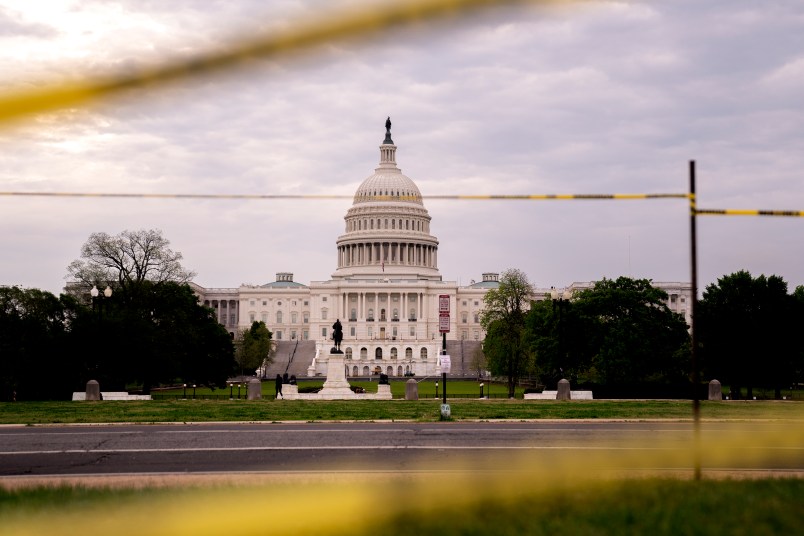Capitol Police Inspector General Michael Bolton testified Monday to the need to bulk up Capitol police’s intelligence resources as the force drowns in threats against lawmakers.
Bolton said that his office identified the manpower shortage at least back in September 2020 and that the “caseload has basically exploded” since then.
Capitol police responded to Bolton’s newest flash report — his third, following others that contained alarming revelations about expired munitions and restrictions on what kinds of “less-lethal” force officers could use — highlighting the growth in threats with a grim statistic.
“This year alone, there has been a 107% increase in threats against Members compared to 2020,” the department wrote in a statement. “Provided the unique threat environment we currently live in, the Department is confident the number of cases will continue to increase.”
The Capitol police, in the statement, asked for resources and buy-in from congressional stakeholders to help deal with the influx.
“In 2020, the USSS, which has more than 100 agents and analysts, had approximately 8,000 cases,” the statement said of the Secret Service. “During the same time period, the USCP, which has just over 30 agents and analysts, had approximately 9,000 cases.”
Bolton made a series of recommendations mostly centered on beefing up staff and training, even suggesting that the force establish a “stand-alone entity” specifically dedicated to countersurveillance activities.
Much of the outrage and confusion in the wake of January 6 centered on how Capitol police and other law enforcement agencies were so dismally unprepared for the insurrection.
Many specific questions continue to go unanswered, though. At one point during Monday’s hearing, committee chair Zoe Lofgren (D-CA) asked why officers monitored a handful of counterprotesters and ignored hundreds of Proud Boys gathering near the Capitol. Bolton said that his next flash report — focused on the department’s Containment Emergency Response Team and First Responders Unit, for which he said they plan to do many interviews and scrutinize radio traffic — may help elucidate specific episodes like that.
Bolton said he wants to shift the department to act more like a protective agency and less like a traditional police force. He explained how that shift would look, using the pipe bombs that were planted at the Democratic and Republicans National Committees on January 5 and discovered the next day as an example.
On January 6, he said, three teams left to investigate the bombs, leaving only one in charge of the Capitol.
“If those pipe bombs were intended to be a diversion — it worked,” Bolton testified.
In a new protective agency model, Bolton said, Capitol police would dispatch just enough officers to establish a perimeter and keep pedestrians away long enough for agencies like the FBI and Metro PD to arrive. Then Capitol police would return to their station, allowing those agencies to handle the investigation.
Much of what went wrong on January 6 remains frustratingly out of focus, while various congressional committees try to zoom in on certain pieces.
Lofgren said she’d soon be calling a hearing with the Capitol Police Board, the entity charged with nearly all protective decisions about the campus that apparently has no congressional oversight at all (or, perhaps, has not had much oversight before because the committee in charge only found out about that particular responsibility three weeks ago). Her committee will also be holding a hearing on the emergency preparedness of the Architect of the Capitol, the office staffed by people who maintain the building and its grounds, on Wednesday.







Let’s see a split of how many of those threats are against Democratic vs. Republican congresscritters.
I’m pretty sure I know how it shakes out.
Go Zoe. Keep looking. Thank you
Every one of these threats needs to be investigated, and if a case can be brought, they need to be arrested and jailed. This shit has to stop.
Democrats and R’s who said anything negative about the MFWWNBN.
LIz Cheney is a Democrat?
I’ll bet many of the threats are against her.
Also Romney, plus the lesser-known who voted to impeach Trump the second time round.